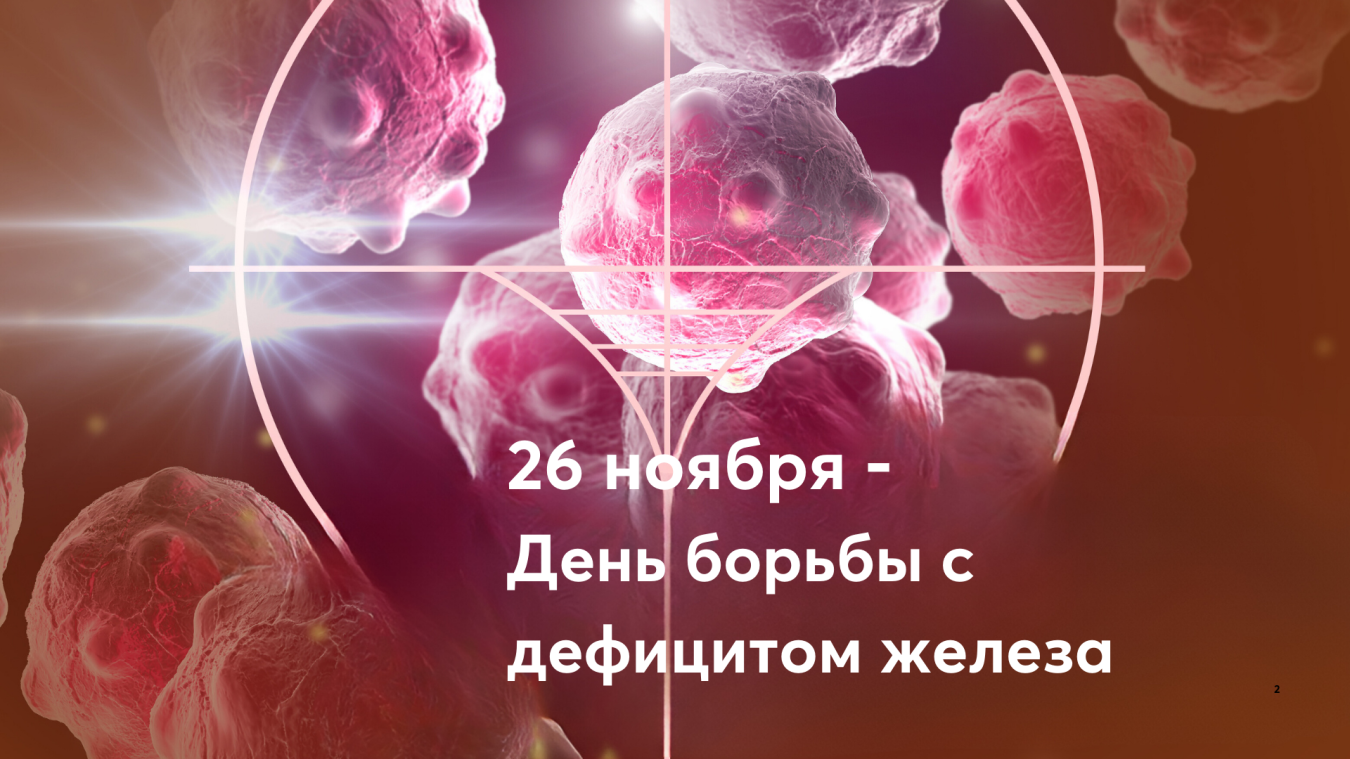Egis’s website uses cookies to run our website, improve the user experience and monitor the activities. You can customize the use of the cookies by adapting the settings.

Iron is essential for a healthy body. It helps transport oxygen, produce energy, and synthesize DNA. [2]. Iron deficiency occurs when the body lacks vital iron, affecting various organ functions. The central nervous, endocrine, and cardiovascular systems are most commonly impacted. Women of reproductive age face a higher risk, with one in three affected by anemia due to iron deficiency according to WHO[3].
Iron deficiency often goes undetected as symptoms are subtle initially. Without regular check-ups, many individuals unknowingly live with this condition, risking severe health implications in the long run.
The "Ferritin-2023" study conducted by Egis based on the Invitro laboratory network revealed that 66% of women in Moscow and the Moscow region have iron deficiency[3]. The study involved 345 primary care physicians: general practitioners, therapists, obstetricians-gynecologists from Moscow and 59 cities and towns in the Moscow region. The total number of patients aged 18 to 87 years in the overall group was 1,971. Even more shocking is the fact that 80% of the women with identified iron deficiency require treatment, not just preventive measures3. These data underscore the urgent need to raise awareness of the problem and improve the diagnosis and treatment of iron deficiency among the female population of Russia. The recognition of the "Ferritin-2023" program as the best medical and social project confirms its effectiveness and significance[4].
Egis is actively involved in the fight against iron deficiency, supporting the national goals set by the Head of the State: "preserving the population, strengthening health and improving people's well-being, supporting the family", including increasing the total fertility rate to 1.6 by 2030 and to 1.8 by 2036[5]. To this end, Egis is implementing educational programs for healthcare professionals, investing in research on the prevalence of iron deficiency, and ensuring the availability of iron preparations on the Russian market.
Explore the "Iron Rules" Telegram channel for healthcare professionals—a rich source of current scientific data, clinical guidelines, and patient stories on iron deficiency.
Enhancing the fight against iron deficiency globally and in Russia hinges on sustained, multi-level efforts. From state initiatives to individual health choices, ongoing research, improved diagnostics, broader access to care, and continuous medical professional training are vital.
Timely diagnosis of iron deficiency is critical to prevent serious consequences. Regular screening allows the problem to be identified at an early stage, when treatment is most effective. Prevention of iron deficiency in women of reproductive age, according to WHO recommendations², includes a preventive course of oral iron supplements, along with a balanced diet rich in iron and products that increase its absorption (meat, poultry, fish, green vegetables), and early diagnosis of iron deficiency anemia (IDA) through regular blood tests. Information campaigns, such as those conducted by Egis, help raise awareness of the problem of iron deficiency and the importance of its prevention. Available resources, such as the website www.superiron.ru, provide people with the necessary information and self-assessment tools.
Only by combining the efforts of the medical community, pharmaceutical companies, government agencies, and society as a whole can we effectively address the problem of iron deficiency and improve the health of millions of people around the world.
________________________________________
[1] Stuklov N.I., Kovalchuk M.S., Gurkina A.A., Vareha N.V. The "Ferritin 2023" program for the study of population indicators of serum ferritin in women in the Moscow agglomeration (2023–2024) // Obstetrics and Gynecology: News, Opinions, Training. 2024. Vol. 12, No. 3. P. 94–101. DOI: https://doi.org/10.33029/2303-9698-2024-12-3-94-101
[2] https://www.who.int/health-topics/anaemia#tab=tab_1
[3]Stuklov N.I., Kovalchuk M.S., Gurkina A.A., Kisly N.D. Epidemiology of iron deficiency in Russia: serum ferritin indicators depending on sex and age. Clinical Medicine. 2023; 101(6):308–314.DOI: http://dx.doi.org/10.30629/0023-2149-2023-101-6-308-314
[4]https://socprojects.org/index.php?id=76
[5] http://www.kremlin.ru/events/president/news/73986